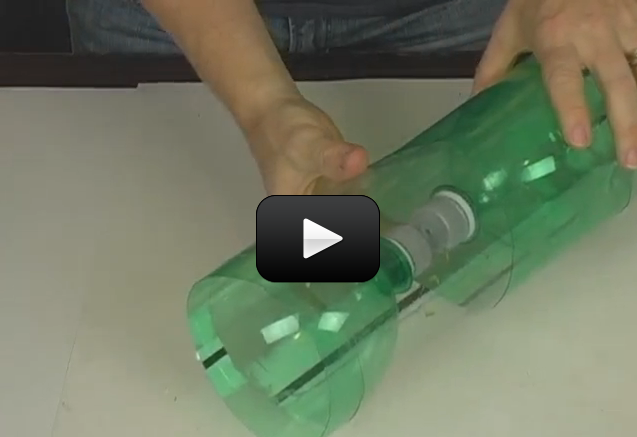What grows in the corner of your windowsill? In the cracks in the sidewalk? Under the front steps? In the gutter at the bottom of the driveway? Specifically, how doe these animals build their homes and how much space do they need? What do they eat? Where do fish get their food? How do ants find their next meal?
These are hard questions to answer if you don’t have a chance to observe these animals up-close. By building an eco-system, you’ll get to observe and investigate the habits and behaviors of your favorite animals. This column will have an aquarium section, a decomposition chamber with fruit flies or worms, and a predator chamber, with water that flows through all sections. This is a great way to see how the water cycle, insects, plants, soil, and marine animals all work together and interact.
Please login or register to read the rest of this content.


You can dechlorinate water by letting it sit for 24 hours (most of the chlorinate will evaporate), use a UV light (it neutralizes the chlorine), boil it for 10 minutes and let cool (chlorine evaporates), or use vitamin C (add a tablet to the water to neutralize the chlorine).
Do I have to de-chlorinate the water before I put it in the aquarium column? If so, how? And does letting the water sit for 24 hours actually work to de-chlorinate it? And also, how and why does it work?
It’s a little small for tadpoles and frogs – use a larger container and you should be alright.
This is Jeremiah can you put tadpoles and frogs in it
the fruit flies will not come onless you put fruit in. by the way the name at the top is my moms name.
Got it – I am not quite sure about your worm experience. I’ll ask my biologist friends and see if they have insights to share.
And summer e-Camp is available June through August, so you’ll find the link active then!
Dear Aurora
I don’t think they were under water for six months, I think I tipped out the water as soon as I noticed what had happened and I’m not certain how long they had been in there. But I did leave them for a long time after I tipped the water out.
Also… when we click on the Ecamp link at the bottom of the topics page it goes to an error page. Is there another link available please?
From Briar
Wow – that’s amazing! It is true that some animals can go into a dormant state when environmental conditions aren’t suitable and then re-emerge when the conditions are right again. I am not quite sure what kind of worms you had or how much water they were in for how long (were they really completely submerged for 6 months, or did it just look like they were?), but it sounds like you’re learning something new! 🙂
Dear Aurora
I have a bit of a weird question/mistrery for you. I built an Eco column and drilled the holes a bit to big by accident (where
the worms were) and the worms went through them and fell into the pond I had at the bottom, when I found out about it I thought that they were dead and tipped out the water and left them in there for about five to six months, about a week ago I looked in it to see if they were going moldy and they were bigger, fatter and still alive! Is there anything that you think might have made them survive?
From Briar
P.S There were little stones and rocks in the bottom of the pond column.
They are naturally attracted to the trap you build!
Where do the fruit flies come from?
You get water through condensation (when water condenses out of the air and sticks to surfaces like the inside of the bottle), and you can also open up the top and add water. Respiration of the soil and plants will work with the water to add to your ecosystem’s stability.
Just one question,
How does the water from the top drip down to the bottom if there aren’t holes in the rest of the bottles?
Thanks,
Tamar
Sure – whatever you want to create is great! My ideas are just the spring-board for your creativity…
Depends on how well you keep your ecosystem healthy… it’s a delicate balance, as you will find out. Choose guppies or goldfish, as they are much hardier and will tolerate murkier water than most.
can’t I do like a food cycle thing (bottom-plants|bottom middle-what ever eats the plants|top middle-what ever eats the bugs|top-what ever you want or just leave empty
Oh and another question. How long will the fish live?
Yes it does. Thank you so much!
You can do it either way. If you have a hole in the bottom cap, make it a tiny hole with a layer of mulch in the neck of the bottle just above the aquarium. You can add a small goldfish or guppy in the lowest bottle to really make it look like an aquarium. The run-off water will feed the aquarium, just like run-off in nature feeds pools and rivers. Does that help clarify things a bit?
Hi Aurora, I have question.
What is the aquarium for? Do I have to put a hole in the cap going up from the aquarium? And if I had to put a hole in the cap, what would the fruit flies do in the aquarium?
Thanks